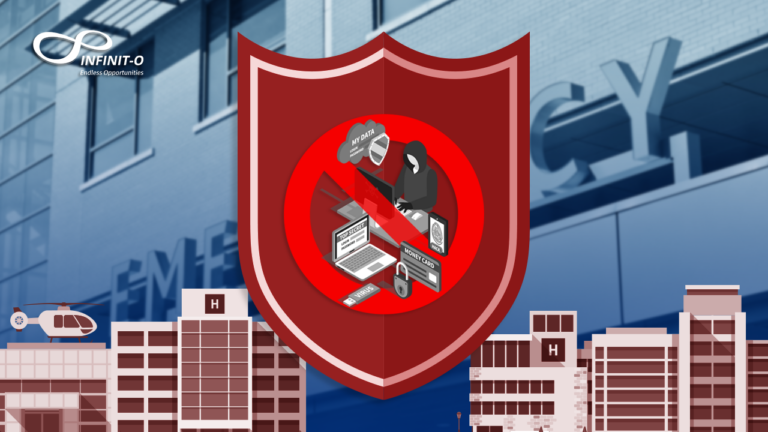How Outsourcing Helps the Practice of ‘Continuous Healthcare’
The goal of the healthcare industry is to provide value-based, continuous healthcare to as many people as possible—improving the overall population at a reduced per capital cost. However, this can be challenging considering the population boom, the lack of healthcare workers to fulfill demand, and the increasing cost of health services.
Fortunately, outsourcing healthcare management solutions can assist various healthcare organizations in providing better continuous care.
From Episodic to Continuous Healthcare
Here’s how healthcare is currently delivered: Patients often go for medical consultations when they’re experiencing a symptom(s). Physicians usually treat patients based on that window or episode an active symptom is present. When patients aren’t feeling active symptoms, or can be described as feeling “well,” chances are they wouldn’t be going for a medical provider anytime soon.
This behavior provides a huge gap for healthcare providers to care properly for patients. Care, then just becomes episodic and is hugely focused on the physician, as he treats the patient based on the few medical data he has on hand per episode or medical consult.
This is further aggravated as patients usually consult with different physicians based on specializations, depending on where an active symptom or illness is felt. Episodic healthcare becomes less integrated, and patient care is left lacking.
If healthcare providers have access to while patients aren’t yet symptomatic (or not feeling well), they can certainly see patterns of behavior and warning signs that point to illness progression, if intervention isn’t done. For patients who are already symptomatic and have an active chronic disease, monitoring treatment adherence will substantially reduce risk.
If healthcare organizations integrate their systems to allow physicians and other healthcare professionals access patients’ central medical records, patient care becomes integrated, and healthcare delivery will vastly improve.
Treatment would no longer be based on physicians but on the patient—taking into account all other treatments he has received. Also, consulting with fellow physicians regarding the best care for a patient would result in a patient-focused health care.
Continuous Healthcare is Patient-Focused, Value-Based Healthcare
Continuous healthcare allows physicians to adequately assess a patient’s overall health, vastly improving healthcare delivery and treatment, reducing risks for chronic illnesses and complications. In the long-term, it would lead to reduced patient visits, need for hospitalization care, operational costs, and patient fees as well.
What continuous healthcare gives is an insight into a patient’s behavioral patterns, so physicians can quickly identify tendencies, prevent it from progressing, and stop it from becoming an active symptom or illness.
A great example would be monitoring a patient’s mobility. Smartphones and wearable fitness devices can keep track of one’s mobility and food intake. If physicians know that an individual is only taking 1,500 steps and consuming 4,000 calories a day, they can easily flag him for obesity risk, intervening by educating him regarding the more active lifestyle and healthier eating choices.
Technology provides continuous healthcare
The ability to record and monitor data regarding different aspects of a patient’s lifestyle improves the quality of health care service. When you also give and educate patients on how to monitor and read their medical information, they can become empowered and engaged in their health care. They take an active role in collecting and sharing their data with their physicians, allowing better communication, and an overall improved quality of patient experience.
We’re dealing with vast amounts of data collected every minute of the day and the scenarios we discuss only deal with healthcare prevention. Factor in patients currently needing hospital care, those with chronic illness and particular cases—across age groups and locations are bound to be overwhelming for most hospitals.
Since hospitals would rather focus on healthcare service delivery because it’s their core business, technology support often takes the biggest budget cut and put in the least priority. Analysts also are unlikely to be hired, as their salary would be past their budgets.
Outsourcing healthcare management solutions that deal with technology, specifically big data, is a better choice.
Outsourcing delivers the necessary support operations to ensure continuous healthcare is provided. Encoding, billing, transcription, finance and accounting, and patient services are not core services by hospitals or healthcare organizations, but they are just as important.
When outsourced to a quality provider, you’re guaranteed that services are delivered seamlessly, effectively, and efficiently.
Big data and technology, which can be collectively known as data analytics as a service, can also allow hospitals to identify trends for treatments and diseases. Kaiser Permanente is using it to their advantage.
Hospitals might not be able to have the same manpower and financial funding Kaiser can provide, but with careful review of security and quality assurance, hospitals can easily outsource analytics and healthcare information management to a trusted outsourcing provider.
With our extensive list of healthcare outsourcing solutions available, medical providers—either a Healthcare Payer or a Healthcare Provider, or those belonging to the Software-as-a-Service (Saas) industry or the Pharmaceutical industry, all of these can trust us with everything they need. Being ISO 270001:2005 certified, ISO 9001: 2008 Certified and Six Sigma qualified, we guarantee nothing but the best when it comes to improving your services. Learn more!
Infinit-O is the trusted customer-centric and sustainable leader in Business Process Optimization to Small and Medium businesses in the Financial Services, Healthcare and Technology sectors by delivering continuous improvement through technology, data and people.
When you’re ready to grow, think Infinit-O!
Healthcare
Finance and Accounting
Data and Research
Information Technology Outsourcing
Customer Care







This site is protected by reCAPTCHA and the Google Privacy Policy and Terms of Service apply.